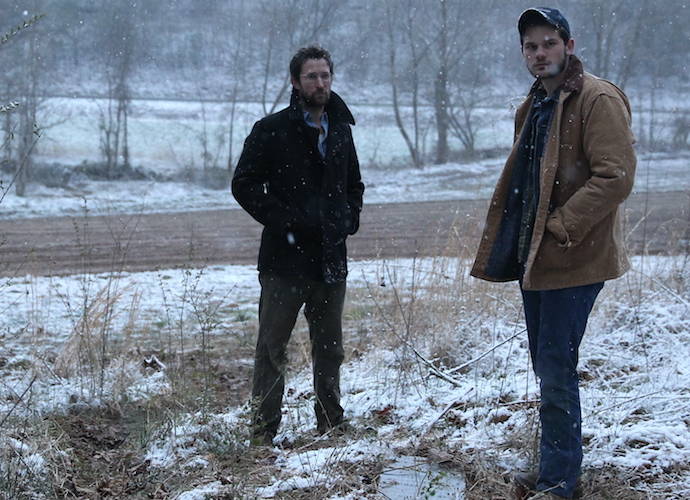‘The World Made Straight’ Review: The Civil War Never Ends In Southern Gothic Tale

3/5
The World Made Straight, while it may stumble as an adaptation of a bildungsroman novel – feeling too hackneyed where the evolution of a troubled young man is concerned – it succeeds immensely with capturing the most interesting character of the film – Appalachia North Carolina 100 years after the Civil War.
‘The World Made Straight’ movie Review
The movie opens with a shaky camera showing the execution of a young boy and the rest of his family during the bloody days of the Civil War, his tiny spectacles slipping from his innocent face as it hits the dirt. A voice over talks about landscape being destiny and the surreal existence that is “living in the passive voice.”
Fast-forward to the 1970s, Travis (Jeremy Irvine) resides in a Western North Carolina town in which his parents grew up, and their parents before them and so on. After dropping out of high school, his discordant spirit makes it impossible for him to hold down a job. Traipsing through a wood, Travis comes upon an unguarded pot farm and chops down as much as he can carry. When he gets back into town, his pal (Hailey Joel Osment) introduces him to Leonard (Noah Wyle) – a high school teacher-turned-townie drug dealer
Director David Burris employs little subtlety in the introduction of The World Made Straight’s central relationship. Leonard, whose trailer takes on the pretentions of a bon vivant professor of life – from the books and booze to the classical music and half-naked young woman in the bedroom – is the teacher to Travis’ wayward student. Leonard’s goal will assuredly be to help the young man in whom he sees a vestige of himself realize his potential. His professorial characterization comes complete with strong stubble, wire-rimmed glasses and – because of where this particular story is set – a shotgun.
More interesting than the mentorship is the family history that’s informed Leonad’s life and is bound to inform Travis’ as well. For Leonard, back in his hometown after unjustly losing his teaching job, he experiences a visceral reaction on the patches of land that were once covered in the blood of his and Travis’ kin. Before long, Travis consumes the histories of the era piled up in Leonard’s trailer, dedicating himself more to the study of his past than to his future.
Irvine, best known for his turn in the Oscar-nominated War Horse, bears little resemblance to the eager young man who joins the British army in World War I to find his equine best friend. He’s replaced his British accent with a gravelly backwoods dialect, gained a few pounds of muscle and a short beard and lumbers about with the noticeable chip on the shoulder of a disenfranchised young man. Compared to Irvine’s deft performance, Wyle’s feels a bit overdone at times, not aided by the film’s well-worn plotting.
Burris lovingly documents The World Made Straight’s beautifully bucolic landscape and the rich history of its characters. Had Leonard and Travis and their relationship been treated with a bit less sentimentality and a little bit more of the roughness that made them the men they became, The World Made Straight could have been elevated from the ably prosaic to the masterfully stirring.
RELATED ARTICLES
Get the most-revealing celebrity conversations with the uInterview podcast!








Leave a comment